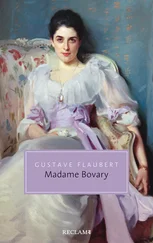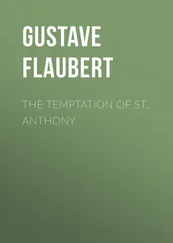Gustave Flaubert - The George Sand-Gustave Flaubert Letters
Здесь есть возможность читать онлайн «Gustave Flaubert - The George Sand-Gustave Flaubert Letters» — ознакомительный отрывок электронной книги совершенно бесплатно, а после прочтения отрывка купить полную версию. В некоторых случаях можно слушать аудио, скачать через торрент в формате fb2 и присутствует краткое содержание. Жанр: foreign_antique, foreign_prose, на английском языке. Описание произведения, (предисловие) а так же отзывы посетителей доступны на портале библиотеки ЛибКат.
- Название:The George Sand-Gustave Flaubert Letters
- Автор:
- Жанр:
- Год:неизвестен
- ISBN:нет данных
- Рейтинг книги:4 / 5. Голосов: 1
-
Избранное:Добавить в избранное
- Отзывы:
-
Ваша оценка:
- 80
- 1
- 2
- 3
- 4
- 5
The George Sand-Gustave Flaubert Letters: краткое содержание, описание и аннотация
Предлагаем к чтению аннотацию, описание, краткое содержание или предисловие (зависит от того, что написал сам автор книги «The George Sand-Gustave Flaubert Letters»). Если вы не нашли необходимую информацию о книге — напишите в комментариях, мы постараемся отыскать её.
The George Sand-Gustave Flaubert Letters — читать онлайн ознакомительный отрывок
Ниже представлен текст книги, разбитый по страницам. Система сохранения места последней прочитанной страницы, позволяет с удобством читать онлайн бесплатно книгу «The George Sand-Gustave Flaubert Letters», без необходимости каждый раз заново искать на чём Вы остановились. Поставьте закладку, и сможете в любой момент перейти на страницу, на которой закончили чтение.
Интервал:
Закладка:
As we have compressed the long and complex story of her personal relationships, so we must compress the intimately related history of her works and her ideas. When under the inspiration of Rousseau, the emancipated George Sand began to write, her purposes were but vaguely defined. She conceived of life as primarily an opportunity for unlimited self-expansion, and of literature as an opportunity for unrestricted self-expression. "Nevertheless," she declares, "my instincts have formed, without my privity, the theory I am about to set down, – a theory which I have generally followed unconsciously. … According to this theory, the novel is as much a work of poetry as of analysis. It demands true situations, and characters not only true but real, grouped about a type intended to epitomize the sentiment or the main conceptions of the book. This type generally represents the passion of love, since almost all novels are love- stories. According to this theory (and it is here that it begins) the writer must idealize this love, and consequently this type, – and must not fear to attribute to it all the powers to which he inwardly aspires, or all the sorrows whose pangs he has observed or felt. This type must in no wise, however, become degraded by the vicissitude of events; it must either die or triumph."
In 1831, when her pen began its fluent course through the lyrical works of her first period – Indiana, Valentine, Lelia, Jacques, and the rest – we conceive George Sand's culture, temper, and point of view to have been fairly comparable with those of the young Shelley when, fifteen years earlier, he with Mary Godwin joined Byron and Jane Clairmont in Switzerland – young revoltes, all of them, nourished on eighteenth century revolutionary philosophy and Gothic novels. Both these eighteenth century currents meet in the work of the new romantic group in England and in France. The innermost origin of the early long poems of Shelley and the early works of George Sand is in personal passion, in the commotion of a romantic spirit beating its wings against the cage of custom and circumstance and institutions. The external form of the plot, whatever is fantastic and wilful in its setting and its adventures, is due to the school of Ann Radcliffe. But the quality in Shelley and in George Sand which bewitched even the austere Matthew Arnold in his green and salad days is the poetising of that liberative eighteenth century philosophy into "beautiful idealisms" of a love emancipated from human limitations, a love exalted to the height of its gamut by the influences of nature, triumphantly seeking its own or shattered in magnificent despair. In her novels of the first period, George Sand takes her Byronic revenge upon M. Dudevant. In Indiana and its immediate successors, consciously or unconsciously, she declares to the world what a beautiful soul M. Dudevant condemned to sewing on buttons; in Jacques she paints the man who might fitly have matched her spirit; and by the entire series, which now impresses us as fantastic in sentiment no less than in plot, she won her early reputation as the apologist for free love, the adversary of marriage.
In her middle period – say from 1838 to 1848 – of which The Miller of Aginbault, Consuelo, and The Countess of Rudolstadt are representative works, there is a marked subsidence of her personal emotion, and, in compensation, a rising tide of humanitarian enthusiasm. Gradually satiated with erotic passion, gradually convinced that it is rather a mischief-maker than a reconstructive force in a decrepit society, she is groping, indeed, between her successive liaisons for an elusive felicity, for a larger mission than inspiring Musset's Alexandrines or Chopin's nocturnes. It is somewhat amusing, and at the same time indicative of her vague but deep-seated moral yearnings, to find her writing rebukingly to Sainte-Beuve, as early as 1834, apropos of his epicurean Volupte: "Let the rest do as they like; but you, dear friend, you must produce a book which will change and better mankind, do you see? You can, and therefore should. Oh, if poor I could do it! I should lift my head again and my heart would no longer be broken; but in vain I seek a religion: Shall it be God, shall it be love, friendship, the public welfare? Alas, it seems to me that my soul is framed to receive all these impressions, without one effacing another … Who shall paint justice as it should, as it may, be in our modern society?"
To Sainte-Beuve, himself an unscathed intellectual Odysseus, she declares herself greatly indebted intellectually; but on the whole his influence seems to have been tranquillizing. The material for the radical program, economic, political, and religious, which, like a spiritual ancestor of H. G. Wells, she eagerly sought to popularize by the novels of her middle years, was supplied mainly by Saint-Simon, Lamennais, and Leroux. Her new "religion of humanity," a kind of theosophical socialism, is too fantastically garbed to charm the sober spirits of our age. And yet from the ruins of that time and from the emotional extravagance of books grown tedious, which she has left behind her, George Sand emerges for us with one radiant perception which must be included in whatever religion animates a democratic society: "Everyone must be happy, so that the happiness of a few may not be criminal and cursed by God."
One of George Sand's French critics, M. Caro, a member of the Academy, who deals somewhat austerely with her religiose enthusiasms and with her Utopian projects for social reformation, remarks gravely and not without tenderness:
"The one thing needful to this soul, so strong, so rich in enthusiasm, is a humble moral quality that she disdains, and when she has occasion to speak of it, even slanders, – namely resignation. This is not, as she seems to think, the sluggish virtue of base souls, who, in their superstitious servitude to force, hasten to crouch beneath every yoke. That is a false and degrading resignation; genuine resignation grows out of the conception of the universal order, weighed against which individual sufferings, without ceasing to be a ground of merit, cease to constitute a right of revolt. … Resignation, in the true, the philosophical, the Christian sense, is a manly acceptance of moral law and also of the laws essential to the social order; it is a free adherence to order, a sacrifice approved by reason of a part of one's private good and of one's personal freedom, not to might nor to the tyranny of a human caprice, but to the exigencies of the common weal, which subsists only by the concord of individual liberty with obedient passions."
Читать дальшеИнтервал:
Закладка:
Похожие книги на «The George Sand-Gustave Flaubert Letters»
Представляем Вашему вниманию похожие книги на «The George Sand-Gustave Flaubert Letters» списком для выбора. Мы отобрали схожую по названию и смыслу литературу в надежде предоставить читателям больше вариантов отыскать новые, интересные, ещё непрочитанные произведения.
Обсуждение, отзывы о книге «The George Sand-Gustave Flaubert Letters» и просто собственные мнения читателей. Оставьте ваши комментарии, напишите, что Вы думаете о произведении, его смысле или главных героях. Укажите что конкретно понравилось, а что нет, и почему Вы так считаете.












